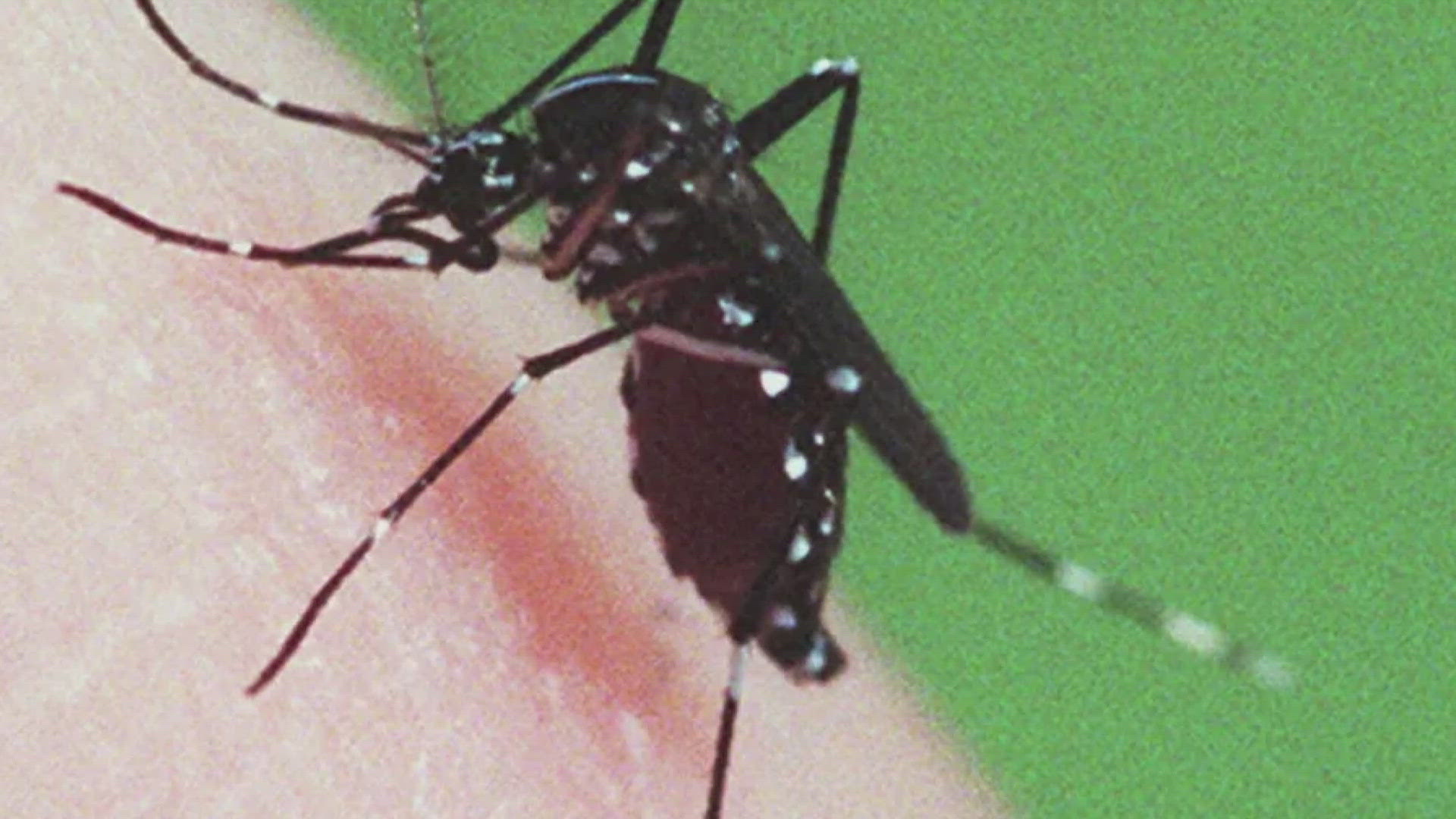PORTLAND, Maine — As a handful of New England states see a spike in mosquito-borne EEE virus, Maine's weekly testing pools have stayed unscathed as state agencies monitor mosquitos.
While no mosquito pools tested in Maine have been flagged as positive for eastern equine encephalitis this year, a handful of animals have in Penobscot and Waldo counties.
With the virus being found in parts of New Hampshire, Vermont and Massachusetts, local pest control businesses have found an uptick in customers spraying for the insects.
"Typically we start treating for mosquitoes in mid-April, all the way through October," Erik Hanson said, who owns Mosquito Squad in Scarborough. "Nowadays, especially because weather has been warming up in the fall, we've even done treatments in November."
Associate Professor and Entomologist Allison Gardiner helps to teach the spread of diseases between humans and animals. She says mild winters and hot summers might be a contributing factor to longer breeding seasons.
"So what that means is the mosquitoes are better able to survive over winter than they would be able to under colder conditions, and they're able to start breeding and multiplying earlier in the season," Gardiner explained.
Gardiner also says mosquitoes would first need to bite an infected host in order to acquire the virus, then subsequently infect humans.
As recently as mid-August, two emus tested positive for EEE or "Triple E" in Penobscot County. According to a spokesperson for the Maine Center for Disease Control and Prevention, the two animals are now virus-free.
While the most recent human case of EEE in Maine was found in 2015, the virus was found in Maine as early as last year.
While not a lot of people show symptoms when infected with the virus, common symptoms can include fever, chills, aches and in severe cases neurological symptoms according to the Maine CDC.
To prevent infection, the Maine CDC advises avoiding outdoor exposure at dusk or dawn when mosquitoes are most active. As well, wearing protective clothing such as long sleeves and pants, paired with a EPA-approved mosquito repellant is best practice.

